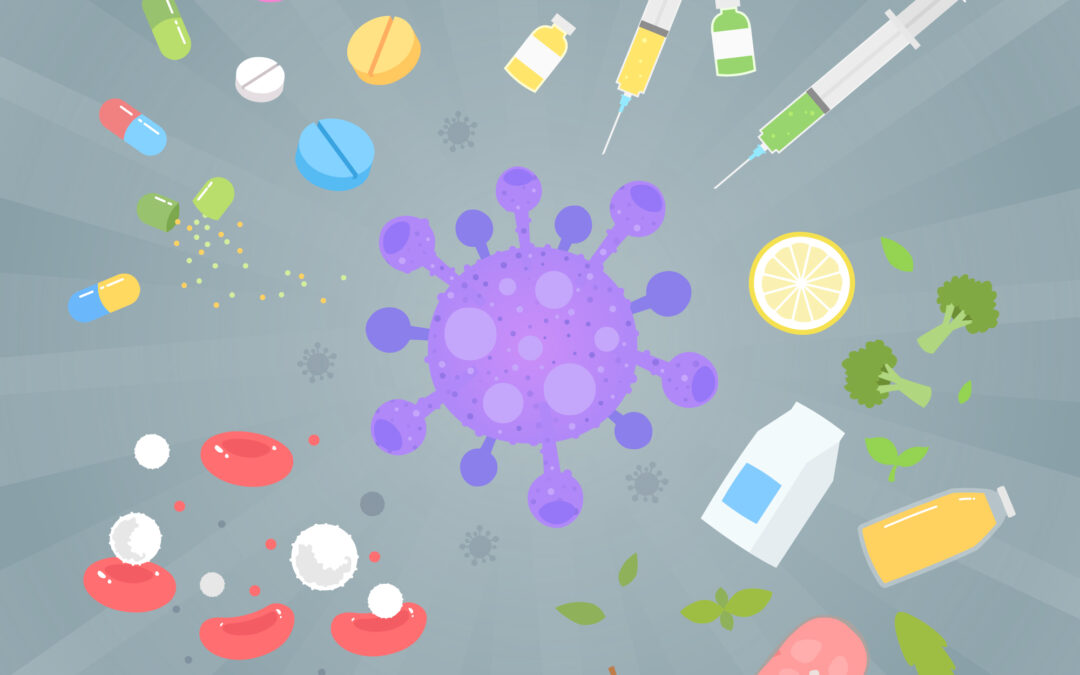As winter’s icy breath sweeps across the land, it brings not just frosty landscapes but also the inevitable companions of cold and flu. Falling prey to these seasonal adversaries can be a physically and mentally taxing ordeal. Yet, understanding the nuanced stages of recovery transforms the journey to wellness into a navigable path. In this exploration, we’ll unravel the intricacies of cold and flu recuperation, offering insights into the general timeline, practical tips for a faster recovery, nourishing foods to hasten the healing process, and crucial advice on when seeking professional medical guidance becomes imperative. Let’s embark on the journey to revitalization, where resilience meets rejuvenation.
Stages of Cold and Flu Recovery
Onset of Symptoms:
It all begins with the first sneeze or scratchy throat. Recognizing the early signs of a cold or flu is crucial for a prompt response.
Stay hydrated and get ample rest right from the beginning to help your body fight off the infection more effectively.
Initial Days (Days 1-3):
The first few days are often characterized by a surge in symptoms, including fever, body aches, and congestion.
Focus on rest, stay home if possible, and avoid strenuous activities to allow your body to divert energy toward healing.
Peak of Symptoms (Days 4-7):
Symptoms often peak around this time, with congestion, coughing, and fatigue taking center stage.
Continue to stay hydrated, and consider over-the-counter medications to alleviate symptoms. Warm showers and steam inhalation can also help ease congestion.
Recovery (Days 8-10):
Improvement begins as symptoms gradually subside. However, some lingering symptoms like a mild cough or fatigue may persist.
Incorporate light physical activity, such as short walks, to regain strength. Maintain good nutrition to support your body’s recovery.
Tips for a Speedy Recovery
Hydration is Key:
- Drink plenty of fluids, including water, herbal teas, and broths, to stay hydrated and help thin mucus.
Rest and Sleep:
- Adequate rest is vital for a swift recovery. Ensure you get enough sleep to support your immune system.
Nutrient-Rich Diet:
- Consume a balanced diet with emphasis on fruits, vegetables, lean proteins, and whole grains to provide essential nutrients for healing.
Over-the-Counter Medications:
- Use over-the-counter medications as directed to manage symptoms like fever, pain, and congestion.
Humidify Your Space:
- Using a humidifier can add moisture to the air, relieving congestion and soothing irritated nasal passages.
When to Seek Medical Attention
Persistent High Fever:
- If your fever persists beyond a few days or worsens, consult a healthcare professional.
Difficulty Breathing:
- Seek immediate medical attention if you experience severe shortness of breath or chest pain.
Worsening Symptoms:
- If symptoms continue to worsen after the first week, consult with a healthcare provider for a proper assessment.
Pre-existing Health Conditions:
- Individuals with pre-existing health conditions or weakened immune systems should seek medical advice early in the illness.
Recovering from a cold or flu requires a combination of patience, self-care, and sometimes, professional guidance. By understanding the stages of recovery and adopting healthy habits, you can empower yourself to navigate the path to wellness with resilience and a focused approach. Remember, everyone’s journey is unique, so listen to your body and seek medical attention when necessary for a prompt and complete recovery.

